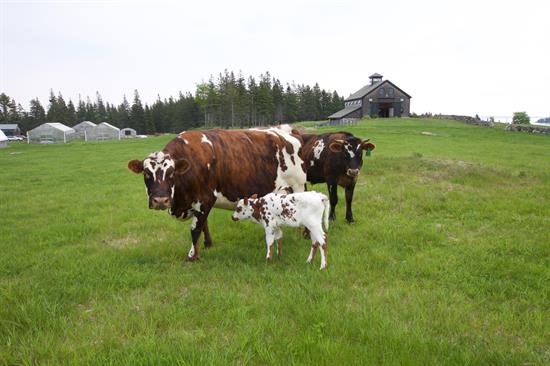Press Releases
Reps. Pingree and Massie Introduce Bipartisan PRIME Act to Empower Local Livestock Farmers, Meet Consumer DemandSenators King and Paul Have Introduced Companion Legislation in the Senate
Washington,
June 11, 2021
Tags:
Food and Agriculture
Today, Representative Chellie Pingree (D-ME) and Representative Thomas Massie (R-KY) re-introduced the PRIME (Processing Revival and Intrastate Meat Exemption) Act to make it easier for small farms and ranches to serve consumers. Companion legislation has been introduced in the United States Senate by Senators Angus King (I-ME) and Rand Paul (R-KY). The PRIME Act would give individual states freedom to permit intrastate distribution of custom-slaughtered meat such as beef, pork, or lamb to consumers, restaurants, hotels, boarding houses, and grocery stores. “The pandemic exposed serious problems in our supply chain—from toilet paper to cars to the meat in our grocery stores. Coupled with the recent ransomware attack on the world’s largest meat company, it’s clear that relying solely on industrial-scale meat processing is a liability,” said Congresswoman Pingree. “Congress must act to make it easier for local farms to compete with these big meat companies and make locally raised livestock processing more widely available. A farmer in Maine shouldn’t have to drive hours to get to a USDA-inspected processing facility when other safe options are available. I’m proud to join Congressman Massie in introducing the bipartisan PRIME Act, which will change federal regulations to help make local meat processing easier.” “Consumers want to know where their food comes from, what it contains, and how it’s processed. Yet, federal inspection requirements make it difficult to purchase food from trusted, local farmers,” said Rep. Massie. “It is time to open our markets to give producers the freedom to succeed and consumers the freedom to choose.” Current law exempts custom slaughter of animals from federal inspection regulations, but only if the meat is slaughtered for personal, household, guest, and employee use (21 U.S.C. § 623(a)). This means that in order to sell individual cuts of locally-raised meats to consumers, farmers and ranchers must first send their animals to one of a limited number of USDA-inspected slaughterhouses. These slaughterhouses are sometimes hundreds of miles away, which adds substantial transportation costs and increases the chance that meat raised locally will be co-mingled with industrially-produced meat. The PRIME Act would expand the current custom exemption and allow small farms, ranches, and slaughterhouses to thrive. Original co-sponsors of the PRIME Act include Representatives Jeff Duncan (R-SC), Jared Huffman (D-CA), Randy Feenstra (R-IA), Darren Soto (D-FL), Tim Burchett (R-TN), Ken Buck (R-CO), Mo Brooks (R-AL), Warren Davidson (R-OH), Paul Gosar (R-AZ), Jaime Herrera Beutler (R-WA), Louie Gohmert (R-TX), Ted Budd (R-NC), Ralph Norman (R-SC), Chip Roy (R-TX), Scott Perry (R-PA), Michael Cloud (R-LA), Tom McClintock (R-CA), Glenn Grothman (R-WI), Debbie Lesko (R-AZ), Marjorie Taylor Greene (R-GA), Nancy Mace (R-SC), Matt Rosendale (R-MT), Lauren Boebert (R-CO), Andy Biggs (R-AZ), Jason Smith (R-MO), and Matt Gaetz (R-FL). ### |

